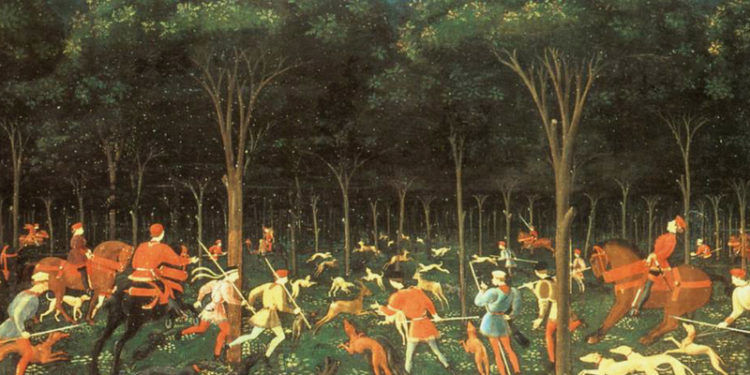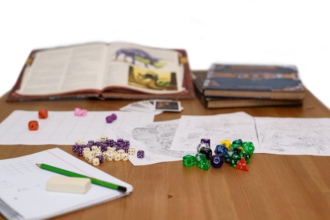5 Tips For Outlining A TTRPG Session

If you are a new Dungeon Master or a player who is curious to try running a game, I want to welcome you to the glorious and wonderful world of Dungeon Mastering. This article is the summation of the advice I’ve given to new DMs I’ve met and to friends that are wanting to try being behind the screen for the first time.
If you are a veteran DM, I hope there are some useful nuggets in here. And if you have more to add, please comment with a tip of your own!
Keep it Simple
It’s often said that no plan survives contact with the players. That’s why I’ve learned to keep my sessions pretty simple. I found that I was often over planning and either had to stop midway through an arch or pick up in the middle of combat next time.
In a three-hour session really only a few major events can happen. My group tends to have time for one social encounter and one combat encounter. Your group might be faster at one or the other, or prefer one of the three pillars of play (roleplaying, exploration, and combat) over the others. In such cases, lean into that pillar.
I try to keep my notes to the basics:
- Major quest and plot points
- Any Key NPCs, their motivations, and their relationships with the players
- Any treasure they need to find
- Any information they need
Build Only What You Need
This is a big tip to first-time DMs.
BUild what your players are likely to encounter. Don’t bother with the entire geography, lore, and culture of a continent they’ll never get to in the campaign. At most, I’d say a brief paragraph giving a general description of the area in case it comes up.
Don’t worry about building out your entire world and its history. Just start with what you need for the session. Allow it to grow organically and include ideas from the players as you see fit. That gives them a sense that the world is co-created and that their contributions matter.
For my current campaign, I started it with the town the game would begin in, and any major nearby settlements. I had the benefit of the region the campaign takes place in rolling around in my head for a while before we started. Now, 10 sessions in, I have had time between campaigns to develop a history, calendar, political structure, and more. I only did those things because they were fun for me and gave me some more potential plot hooks to play with.
Use a campaign setting (one by Wizards of the Coast, or any of the great 3rd party ones) for inspiration, or to save time on the parts of worldbuilding you don’t like.
Know the World Enough to Improvise
Develop or research the world that you’re playing in that you get the general vibe of the world. There are no mistakes in improvisation. Everything is an offer, even if it contradicts something you’ve established in your head about the world, or in some sourcebook.
Take good notes and feel free to let the players know if you need to retcon something later on. They’ll understand.
And if the players are going someplace you didn’t expect and you don’t feel comfortable improvising that, you’re absolutely free to let them know and to ask them to give you time to create it. Most of the time when I’ve done this, the players have agreed to stick with what I had created. They wanna play and they wanna play what you’ve made.
Use Tools to Help You
Generators are your friend! Whether it is for a shop you didn’t expect them to want to go to, or for a whole city, or even a dungeon, using generators both in play and in planning can help you simplify and quicken that process.
I’ve written about some of my favorite tools here. If you have any that you love to use, put them in the comments below!
What Each Session Should Accomplish
Each scene in a session should try to do one of these two things:
- Advance plot
- Advance character development
The way you do that is by providing information. It’s that simple! The characters will make decisions on what information you give them, so be sure to record what you need them to learn and come up with a few ways for them to get it. If the session ends and they don’t have a vital piece of information, find a way for it to get to them as soon as it makes sense for the plot.
Or, play out the consequences and see what happens! It’s up to you and your storyteller instincts.
And finally, have fun. If DMing is stressing you out, take a break. Or, use a pre-made adventure and don’t worry about having to prep an entire world and campaign. Everyone is here to play and will be happy to play whatever you decide to run.
What are your tips and tricks you’ve learned DMing? Tell me below!
Art is The Hunt by Paolo Uccello



